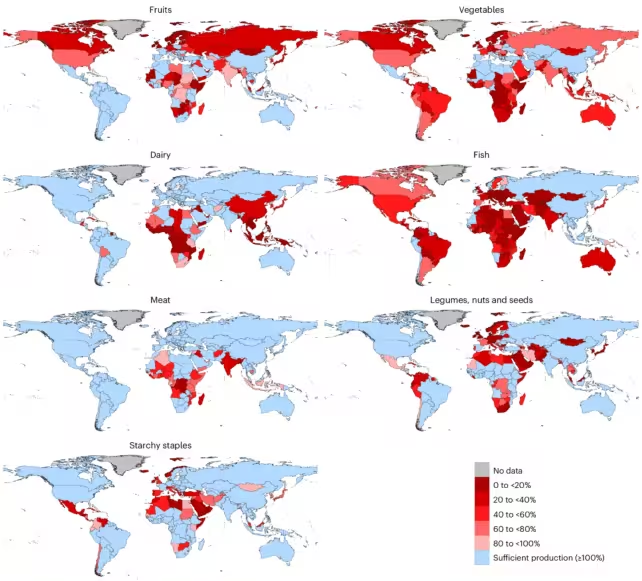3 Minutes
Global Food Self-Sufficiency: Analyzing National Independence
In a world characterized by increasingly interconnected supply chains and volatile geopolitics, the concept of food self-sufficiency has taken center stage. A groundbreaking study led by scientists from the University of Göttingen and the University of Edinburgh set out to answer a fundamental question: which countries could independently feed their populations if all international food trade halted?
Their comprehensive analysis examined food production data from 186 nations across seven essential food groups, including grains, vegetables, fruit, dairy, meat, fish, and oils. The results offer a striking insight into the fragile nature of global food security.
Guyana: The World's Only Fully Self-Sufficient Nation
Remarkably, the study identified Guyana as the only country globally that achieves complete self-sufficiency across all seven food groups. This means that, in the event of a sudden collapse in global food trade, Guyana could theoretically provide a well-rounded diet to its entire population using domestically produced resources alone.
Other notable performers include China and Vietnam, each securing self-sufficiency in six out of seven food categories. However, such examples are rare. According to the research, only approximately one in seven countries meets self-sufficiency targets in at least five groups. Alarmingly, over a third of all countries can only independently supply two or fewer key food groups.
Economic Unions and Persistent Vulnerabilities
The study also evaluated regional economic unions, a critical component of international food systems. For instance, the Gulf Cooperation Council (GCC), comprising several Middle Eastern nations, managed self-sufficiency solely in meat. Unions in West Africa and the Caribbean achieved adequacy in just two categories, while not a single regional bloc could provide enough vegetables to fulfill all members' needs.
This reliance on international food trade underscores a core vulnerability. Many nations depend on a single trade partner for more than half their food imports, exposing them to market disruptions and supply chain shocks. As global challenges such as climate change and geopolitical tensions continue to impact food systems, this situation could worsen.

The Importance of Resilient Food Supply Chains
Building diversified and robust food supply networks is vital for ensuring long-term food security and public health. "International food trade and cooperation are essential for healthy and sustainable diets. However, heavy reliance on imports from single countries can leave nations vulnerable," notes Jonas Stehl, a developmental economist at the University of Göttingen.
Researchers emphasize that maintaining a variety of trade relationships and minimizing protectionist policies are crucial strategies for mitigating risks. Resilient supply chains not only strengthen food security but also support public health, especially in times of crisis.
Conclusion
The study’s findings highlight the rarity of national food self-sufficiency in today’s globalized world. With only Guyana fully independent in its food production, most countries remain highly dependent on trade, making them susceptible to shocks in the world’s complex supply networks. Ensuring diverse and resilient food supply chains will be critical to safeguarding global food security and public health in the future.



Comments